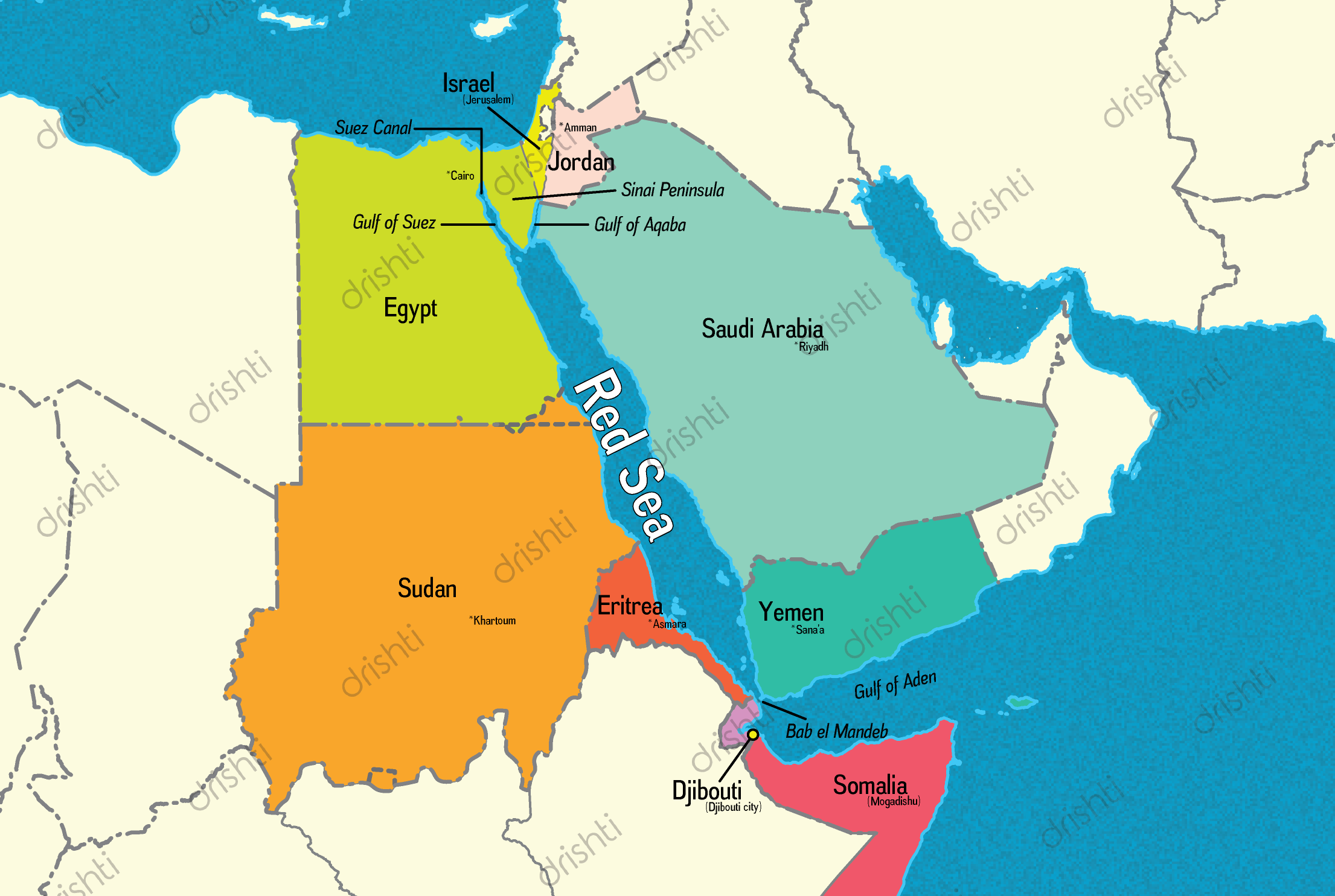International Relations
Hope for Peace in Yemen
- 21 Apr 2023
- 6 min read
For Prelims: Houthis, Location of Yemen and the neighborhood, Operation Rahat.
For Mains: Yemen civil war, Significance of the Houthi conflict, India’s Interest
Why in News?
The warring sides in Yemen are swapping hundreds of prisoners - a move which has built hopes for a permanent ceasefire between the Saudi-backed government forces and the Iranian-backed Houthi rebels.
How did the War in Yemen Begin?
- The Yemeni Civil War began in 2011 after the ousting of authoritarian president Ali Abdullah Saleh. The new president, Abdrabbuh Mansour Hadi, was unable to stabilize the country due to economic and security problems.
- The Houthis, a Zaidi Shia Muslim minority group, took advantage of this and seized control of the north and the capital, Sanaa in 2014.
- This alarmed Saudi Arabia, which feared that the Houthis would become allies to their rival, Iran. Saudi Arabia then led a coalition that included other Arab countries and sent troops to Yemen in 2015. However, they were unable to drive out Houthis from Sana’a as well as from the north of the country.
- In April 2022, the UN brokered a ceasefire between the Saudi-led coalition and the Houthi rebels, though the sides failed to renew it six months laters.
What is the Stockholm Agreement?
- The warring parties in control of parts of Yemen had signed the Stockholm Agreement in December 2018, committing to freeing conflict-related detainees.
- The agreement brokered by the United Nations had three main components:
- The Hudayah agreement:
- The Hudayah agreement included a ceasefire in the city of Hodeidah and other clauses like no military reinforcements in the city and strengthened United Nation presence
- The Prisoner Exchange Agreement:
- The agreement was supervised by the Office of the Special Envoy of the Secretary-General for Yemen, and the International Committee of the Red Cross will oversee and facilitate the process.
- They aim to ensure that fundamental humanitarian principles and procedures that facilitate the release, or transfer or repatriation of all persons who were deprived of their liberty during the events in Yemen.
- The agreement was supervised by the Office of the Special Envoy of the Secretary-General for Yemen, and the International Committee of the Red Cross will oversee and facilitate the process.
- Taiz Agreement:
- The Taiz agreement includes the formation of a joint committee with participation from civil society and the UN.
- The Hudayah agreement:
How has this War Affected Yemen?
- According to the UN, Yemen is now the largest humanitarian crisis in the world, with 80% of its population dependent on aid and protection.
- Over three million people have been displaced from their homes since 2015, and public service sectors like healthcare, water, sanitation, and education have either collapsed or are in a dire situation.
- Economically, Yemen is in the trenches, having lost USD 90 billion in economic output, and more than 6,00,000 people have lost their jobs. More than half of the country's population is living in extreme poverty.
What are the Concerns for India and the World in the Yemen Crisis?
- Global:
- Yemen's location at the strait linking the Red Sea with the Gulf of Aden is critical for global oil shipments, raising concerns about the impact of the conflict on global oil prices.
- The presence of groups like al-Qaeda and IS affiliates in Yemen poses a risk to global security.
- India:
- Yemen is a major source of crude oil for India, and any disruption to the oil supply chain could have a significant impact on India's energy security.
- The large population of Indian expats in Yemen, Saudi Arabia, Iran presents a significant challenge for India.
- India has a responsibility to ensure the safety and security of its citizens and manage the impact of any disruption to remittances, which are a significant source of income for many families in India.
What are India’s Initiatives?
- Operation Rahat:
- India launched a massive air and sea operation to evacuate over 4000 Indian nationals from Yemen in April 2015.
- Humanitarian Assistance:
- India has provided food and medical aid to Yemen in the past and thousands of Yemeni nationals have availed of medical treatment in India over the past few years.
- India also continues to facilitate education of a large number of Yemeni nationals in various Indian institutions.
UPSC Civil Services Examination, Previous Year Questions (PYQs)
Q. Very recently, in which of the following countries have lakhs of people either suffered from severe famine/acute malnutrition or died due to starvation caused by war/ethnic conflicts? (2018)
(a) Angola and Zambia
(b) Morocco and Tunisia
(c) Venezuela and Colombia
(d) Yemen and South Sudan
Ans: (d)





